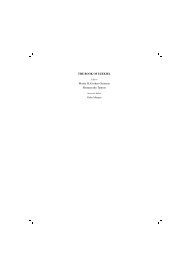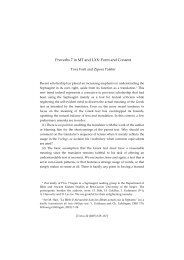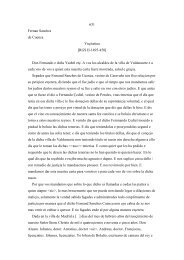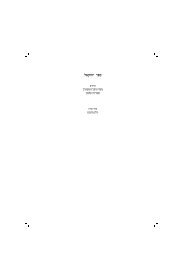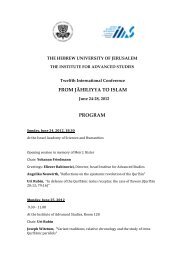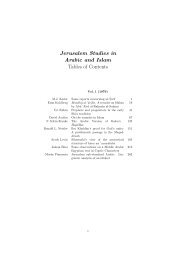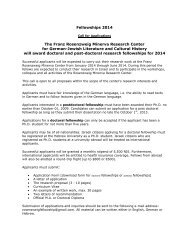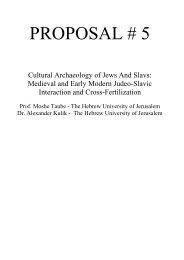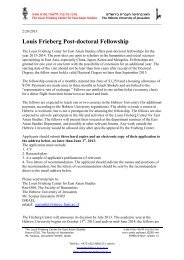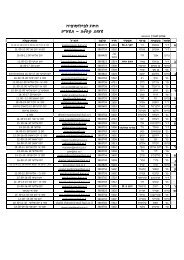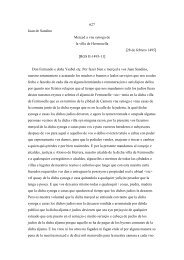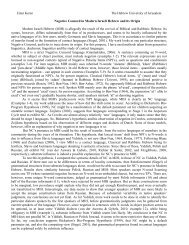Baber Johansen
Baber Johansen
Baber Johansen
Create successful ePaper yourself
Turn your PDF publications into a flip-book with our unique Google optimized e-Paper software.
23<br />
Some such systematic investigations into the relations between theology<br />
and law have been developed by theologians, such as the revered mystic<br />
and ethicist AbÙ ÍÁmid GhazÁlÐ (1058-1111), 74 who was also a respected<br />
ShÁfiÝÐ jurist. Others have been developed by jurists specializing in the<br />
methodology of law, such as the Íanbalī jurist Ibn ÝAqÐl (1039-1119). 75<br />
Both kinds of reasoning are integrated into the arguments of Íanafī,<br />
ShÁfiÝÐ, and Íanbalī jurists of the eleventh and early twelfth century, who<br />
plead for an exclusion of the theologians from the consensus of the<br />
jurists, an infallible source of law according to the Sunnī schools of law.<br />
GhazÁlÐ takes as his point of departure the division of labor between the<br />
disciplines in his time. According to him, in the professional language<br />
(Ýurf) of the scholars the term jurist (faqÐh):<br />
is an expression for the knowledge of the legal norms which are<br />
established in particular for the acts of the legally capacitated<br />
person who is responsible under the law (mukallaf), so that –<br />
according to custom – the name of the jurist (faqÐh) will not be<br />
applied to the theologian, nor to the philosopher, grammarian,<br />
transmitter of ÎadÐth and exegete. Rather, it will be used in<br />
particular for those scholars who are knowledgeable in the legal<br />
norms established for [the regulation] of human acts, such as the<br />
obligatory (wujÙb), the prohibition (ÎaÛr), the indifferent (ibÁÎa),<br />
the recommended (nadb) and the reprehensible (karÁha), and the<br />
contract’s being valid (ÒaÎÐÎ), or deficient (fÁsid) or null and void<br />
(bÁÔil) and that the act of worship (ÝibÁda) [if its execution has<br />
been defaulted upon] has to be replaced by an act of substitution<br />
(qaÃÁÞ), or [if the performance has been executed correctly at the<br />
prescribed time] that it is an act of valid performance (adÁÞ) and<br />
the like. 76<br />
He points out the difference between theology, a discipline that analyzes<br />
human acts in a cosmic context, and law that regulates human acts in a<br />
given social or religious context:



